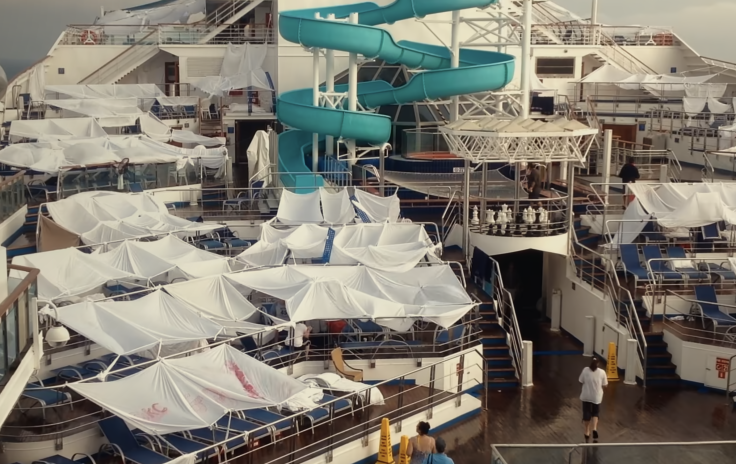Carnival's 'Poop Cruise' Horror: 4,000 Passengers Stranded With No Toilets, No Food—And No Apology
The 2013 Carnival Triumph incident revealed industry flaws, legal tricks, and led to safety reforms after passengers endured days of chaos

A routine cruise holiday spiralled into chaos in 2013 when thousands of passengers aboard the Carnival Triumph found themselves trapped in what would later become known as the 'Poop Cruise'.
With raw sewage flooding the ship, makeshift tent cities forming on deck, and passengers fighting for basic survival, the event shook the cruise industry to its core. Now, Netflix's documentary Trainwreck: Poop Cruise lays bare the horror—and the legal manoeuvring that followed.
Engine Fire Turns Cruise Into Hellish Ordeal
In February 2013, the Carnival Triumph set sail from Galveston, Texas, bound for Mexico. What began as a relaxing voyage soon descended into chaos after a freak engine room fire knocked out power, disabling plumbing and toilets. With no functioning sanitation system, the ship quickly turned into a floating disaster.
Sewage began leaking into hallways. Toilets overflowed. Days passed without relief, and the 4,000 passengers onboard faced deteriorating conditions. Emergency shelters made of bed sheets were set up on deck. People scrambled for food and water. According to the Netflix documentary, the scene was so dire that some passengers resorted to extreme behaviour, with others describing it as nothing short of survival mode.
Fine Print Fallout: The Hidden Clause That Protected Carnival
As lawsuits emerged in the aftermath, Carnival Cruise Line relied on a shocking legal clause hidden within the fine print of its passenger tickets. The clause declared that the company 'makes absolutely no guarantee for safe passage, a seaworthy vessel, adequate and wholesome food, and sanitary and safe living conditions'.
This language became central to Carnival's defence. The company insisted that because passengers had technically accepted these risks, they could not be held liable for the ordeal. Though this defence didn't stop them from eventually compensating affected travellers, it exposed just how companies can use dense legal terms to avoid accountability in the worst of circumstances.
@nursepractitionerashley Both horrified and kind of laughing @Netflix thanks for the not so boring Tuesday night #documentary #cruiseship #carnivalcruise #thegulf #cruises #entertainment #netflix #fyp #fypシ
♬ original sound - Nursepractitionerashley
Aftermath Sparks Industry-Wide Reform
Following widespread outrage and legal challenges, Carnival described the disaster as a 'teachable moment' and pledged to make major changes. The company invested over £400 million (around $520 million) in safety upgrades across its fleet. These included enhanced fire prevention systems, better emergency protocols, and improved backup operations to avoid similar incidents.
The ship involved in the disaster, formerly the Carnival Triumph, has since been refurbished and renamed Carnival Sunrise. It now sails under far stricter standards—but the memory of 2013 lingers as a stark warning of what happens when safety is neglected and corporations hide behind disclaimers.
Social Media Reacts to Netflix's 'Trainwreck: Poop Cruise'
The Netflix documentary Trainwreck: Poop Cruise has sparked intense reactions online. On TikTok, viewers shared their disbelief at what passengers endured. 'These people must be genuinely traumatised,' said one user. Another added: 'I watched it thinking there's no way I wouldn't have jumped overboard!'
Despite the horror, many were struck by the documentary's tone. Some questioned whether the film was a mockumentary due to its sometimes surreal portrayal of events. Still, the blend of dark humour and real trauma underscores just how unbelievable the ordeal was—and why it's still making waves more than a decade later.
Trainwreck: Poop Cruise is now streaming, exclusively on Netflix.
© Copyright IBTimes 2025. All rights reserved.




















